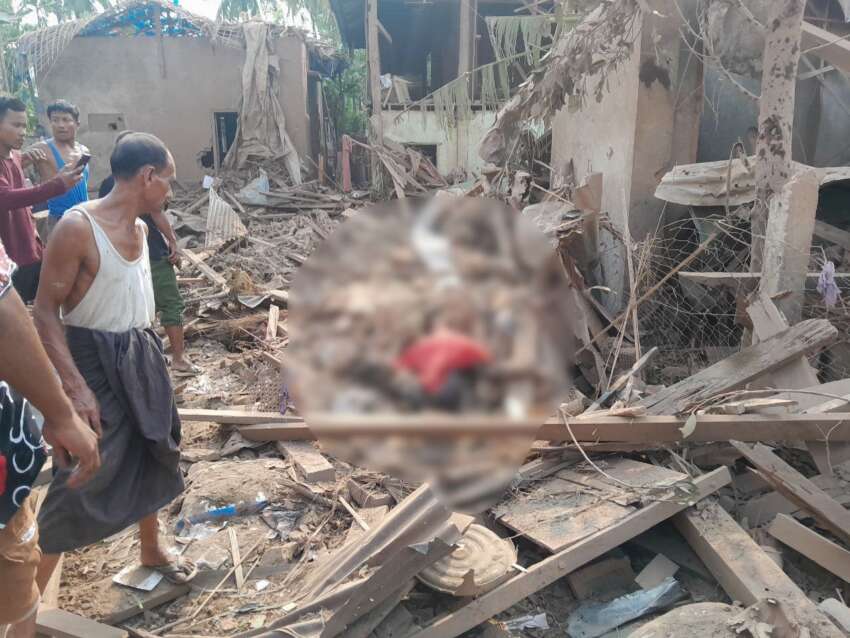
Two women were killed and three others were injured in an airstrike by the military council’s air force on Ywarma Ward in Kyauktaw Town, Rakhine State, according to local residents. The airstrike occurred around 4 PM on May 14, when the military council’s aircraft dropped 500-pound bombs on the residential area. One young woman was killed instantly at the scene, while another woman died while being transported to the hospital. The remains of the first victim had to be collected in pieces, and numerous houses near the bombing site were destroyed. The injured are currently receiving medical treatment.
The airstrike has caused panic among Kyauktaw residents, who are now living in fear of potential future attacks. This incident follows previous airstrikes in the area, including one on April 13 that injured three women, and another on April 19 that killed one local resident and injured 23 others. Military analysts warn that the military council appears to be deliberately targeting townships in Rakhine State, and residents should remain extremely vigilant.
Just a day before, on May 13, the military council’s air force conducted an airstrike on Htun Ywa Wei village in Rathedaung Township, resulting in the deaths of 13 civilians and injuries to more than 20 others. Despite the military council’s announcement of a ceasefire until May 31, citing the earthquake in Sagaing Region, they continue to conduct daily airstrikes in Rakhine, Sagaing, Mandalay, Karenni, and Karen states. These actions demonstrate the military council’s ongoing campaign of violence against civilian populations, despite their public statements about cessation of hostilities.
Local military observers note that these airstrikes appear to be part of a systematic campaign to instill fear in the civilian population. The military council’s actions show a pattern of targeting civilian areas with heavy weapons, causing significant casualties and destruction of civilian infrastructure. The situation has created a humanitarian crisis in the affected regions, with local communities living under constant threat of aerial bombardment. The military council’s continued use of airstrikes against civilian targets, despite claiming to observe a ceasefire, highlights the disconnect between their public statements and actual military operations on the ground.



